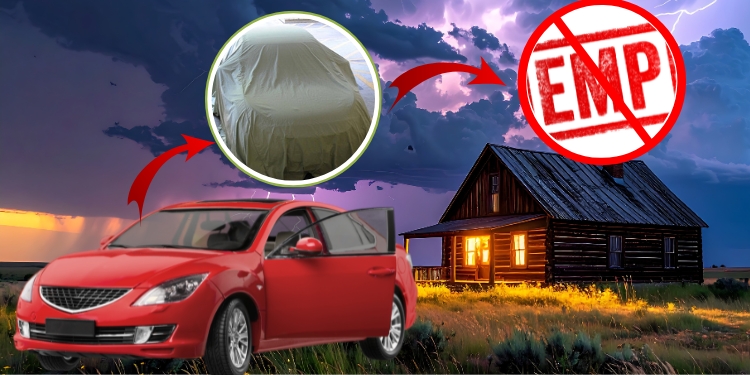More Than 99 Percent of Americans Disapprove of Roadless Rule Rollbacks, According to New Analysis

The public has spoken and the consensus is overwhelmingly clear. More than 99 percent of Americans are opposed to the Trump Administration’s plan to ditch the Roadless Rule, which protects some of our most cherished hunting and fishing spots on U.S. National Forest land. That’s according to a comment analysis performed by the Center for Western Priorities, a nonpartisan conservation and advocacy organization based out of Denver.
“Effectively, it’s unanimous,” CWP Deputy Director Aaron Weiss tells Outdoor Life.
To ascertain this number, Weiss explains, the Center first gathered all the public comments that had been received by the U.S. Department of Agriculture by the morning of September 19, just four hours before the abbreviated, 21-day comment period officially closed. By that point, more than 183,000 comments had been submitted. CWP then pulled a statistically random sample of 5,000 comments from this dataset and used a computer code to analyze and arrange the comments into three categories: oppose, support, and neutral.
CWP’s analysis found that just .6 percent of comments were in support of the USDA’s plan to rescind the Roadless Rule. Another .2 percent were neutral. The vast remainder of public comments, 99.2 percent of them, opposed the rescission of the Roadless Rule.
Read Next: Why the Roadless Rule Is Important for Hunters and Anglers
The Center’s analysis had a margin of error of around 1.4 percent. And while there are other ways to organize large amounts of data, Weiss says the CWP’s random sample approach, which relied on a combination of keyword searches and manual coding to categorize the comments, is the most effective method that he’s aware of.
Weiss also explains that during the four hours after the Center ran its comment analysis on Sept. 19, the USDA received more than 440,000 additional public comments, bringing the total number closer to 625,000, according to the numbers reported on regulations.gov. He says these were mostly paper comments (as opposed to comments submitted online) that had been collected by various conservation groups who are publicly opposed to the planned rescission of the Roadless Rule. This means that the real percentage of public comments in opposition could be even closer to 100.
“It’s clear that the American people are speaking with one voice,” Weiss says. “And this is not a partisan issue. This is not a state by state issue. This is unanimous. Americans are telling the Forest Service: ‘Don’t do this.’”
What’s Next for the Roadless Rule?
Americans’ overwhelming opposition to scrapping the 2001 Roadless Area Conservation Rule shouldn’t be surprising given its history. Around 95 to 97 percent of Americans voiced their support for the rule’s creation in 2001, setting a record for public comments at the time, according to Grand Canyon Trust. So, now that the American people have spoken again in opposition to the rule’s rescission, the USDA will probably just scrap the idea, right?
Not so fast, says Weiss. He points out that by offering the American public just 21 days to comment on a rule that will have huge ramifications on more than 58 million acres of their public forests, the Trump Administration and its appointee to lead the USDA, Brooke Rollins, have already shown their hand. Rollins’ initial statements around the Roadless Rule in June made it abundantly clear that the USDA would get rid of the “overly restrictive rule” to align with Trump’s executive order to “unleash prosperity through deregulation” (i.e. allow for more logging and resource extraction) in our national forests.
“These comment periods are typically 60 to 90 days … so that is the first tell here,” Weiss says. “Allowing 21 days to unravel 25 years of forest protections tells you exactly what’s going on here. Which is that this administration has no interest at all in listening to the American people.”
While the Trump Administration can and likely will move forward with the highly unpopular idea, Weiss says it will eventually have to answer to the Administrative Procedure Act, which guides the federal rule-making process. Under the APA, he explains, the USDA has to respond to all “substantive comments,” especially those that speak to the underlying science behind a proposed rule change, by issuing a policy document like an environmental impact statement.
The USDA has indicated that it will move forward with this process, and that a draft EIS is expected by March 2026. The agency says the public comments that have been submitted so far “will be considered,” and that “additional opportunities to comment will occur.”
Failure to do so would run afoul of the APA and open the administration up to challenges in court. And Weiss says there are plenty of groups waiting to take the Trump Administration to court should it move forward with an official rescission of the Roadless Rule.
“The comments do matter, and it’s the substance of the comments that matters the most,” says Weiss. “Whether it’s from your own life and your experience, or the science that’s involved, the substance is what they have to respond to. And if they ignore the substance, that’s what ends up getting these actions thrown out in court.”
Read the full article here









